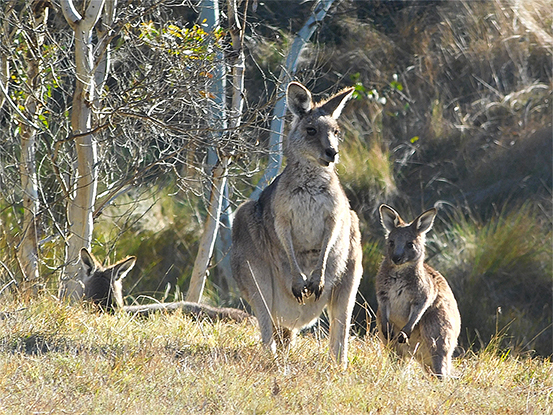
Thanks to Viva!, the British animal welfare organisation that worked closely with AWPC when over here , British and UK meat lovers have a much harder time purchasing a chunk of bloody kangaroo meat for dinner. Even more remarkable, Viva! had a major impact on stopping the use of kangaroo leather for soccer cleats, convincing a famous sporting name. How they did it and also collected excellent resources for others — like the rare and shocking footage of shooters on the killing field — is told here in Viva!’s own words. This killing and cruelty continues today for other buyers of kangaroo skins and meat.
In 1994, shortly after the launch of Viva!, our attention was drawn to a new ‘product’ range in Tesco’s meat chillers, simply labelled ‘kangaroo steaks’.
We discovered that this so-called delicacy was the product of the largest slaughter of land based wildlife in history – hunted at night in the vast outback, with powerful four-track vehicles and mesmerising search lights, the startled animals are shot, supposedly in the head.
Representatives of the killing industry came to the Brighton demo, desperate to protect their markets.
It did them no good because Sainsbury’s also dumped ‘roo meat, followed closely by all major supermarkets—1,500 stores in all.
It led to Juliet being presented with the Australian Wildlife Protection Council award for services to wildlife.
Despite our successes campaigning in the UK the situation remains grave.
Population estimates from 2017 put the numbers of kangaroos in Australia at just over 46.1 million; down by over 11 million from 2001 when there was an estimated 57.4 million.
Worryingly a drop has been seen in all four species that are hunted.
Yet still, over million of kangaroos are earmarked for slaughter each year.
This figure takes no account of the hundreds of thousands of baby ‘Joeys’, who are either left to die from starvation or are removed from their dead mother’s pouches and clubbed to death with iron pipes.